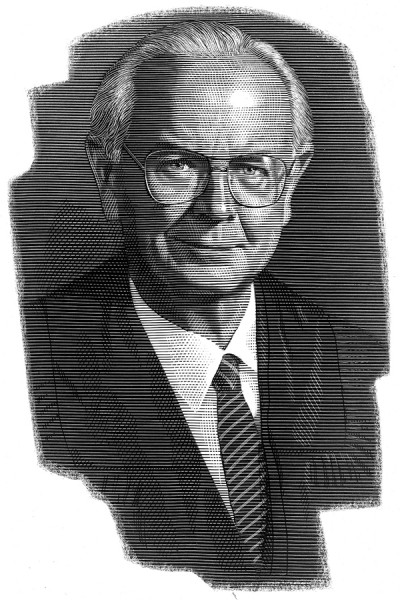
History
Inspired by Justice William J. Brennan Jr.’s devotion to core democratic freedoms, the Brennan Center for Justice works to strengthen democracy, end mass incarceration, and protect liberty and security.
 Mark Summers
Mark Summers
The Brennan Center for Justice at NYU School of Law was founded in 1995 by former law clerks to Justice William J. Brennan Jr. (1906–97) as a living memorial to his ideals: a commitment to a fair and inclusive democracy, support for the disadvantaged, and respect for individual rights and liberties. Above all, Brennan saw the value of “human dignity” as the core of the law.
Born to Irish immigrants, Brennan grew up as witness to the economic hardships and indignities of those in his hometown. “What got me interested in people’s rights and liberties,” Brennan would later recall, “was the kind of neighborhood I was brought up in. I saw all kinds of suffering — people had to struggle.”
Brennan is regarded as one of the country’s most influential justices — the “playmaker” of the Warren Court, with its breakthroughs in civil rights and civil liberties. Appointed in 1956 by President Dwight D. Eisenhower, he authored far-reaching opinions that strengthened democracy, protected free expression, and bolstered the rights of the accused. Among the most important were Baker v. Carr (1962), which helped establish the principle of “one person, one vote,” and New York Times Co. v. Sullivan (1964), which expanded press freedoms.
Brennan argued, “We current Justices read the Constitution in the only way that we can: as twentieth century Americans. We look to the history of the time of framing and to the intervening history of interpretation. But the ultimate question must be: What do the words of the text mean in our time? For the genius of the Constitution rests not in any static meaning it might have had in a world that is dead and gone, but in the adaptability of its great principles to cope with current problems and current needs.”
"For the genius of the Constitution rests not in any static meaning it might have had in a world that is dead and gone, but in the adaptability of its great principles to cope with current problems and current needs.” — Justice William J. Brennan Jr.
In the decades since its launch, the center has grown from a small startup to one of the nation’s leading legal and policy institutions. It has a staff of more than 180 attorneys, scholars, communications professionals, and others, and an annual budget of some $62 million, with offices in New York City and Washington.
Today it has honed a distinct model, combining the elements of a think tank, a legal advocacy group, and a communications hub. The policy reforms it developed have helped form a new agenda for reform in states and nationally.